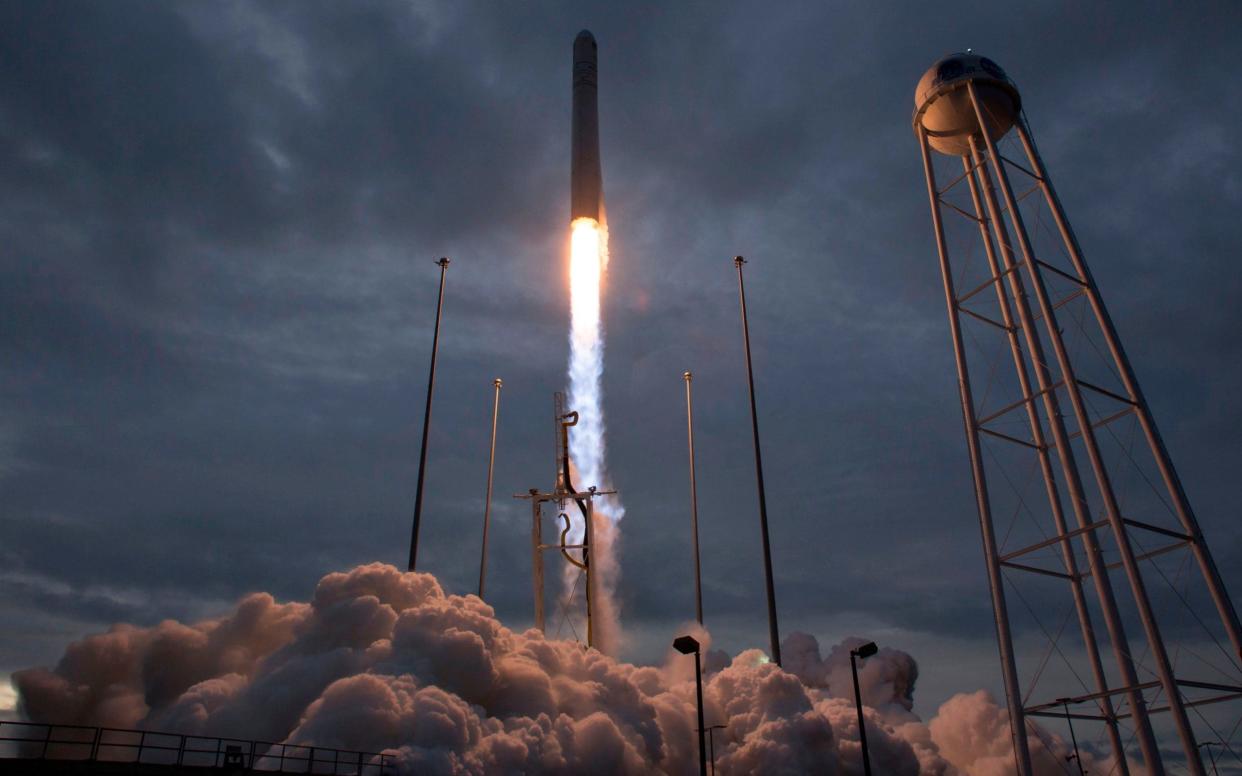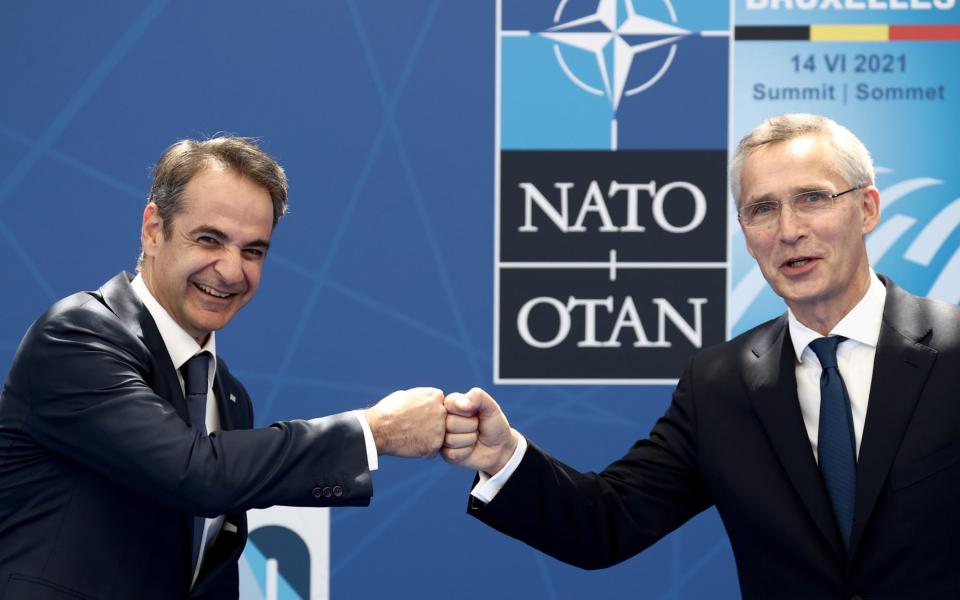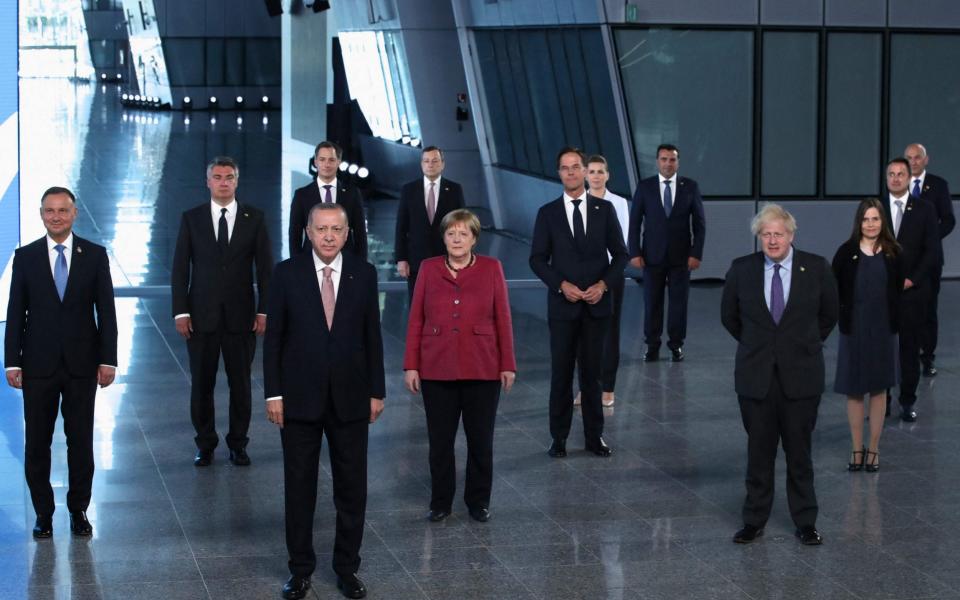Nato ready to respond collectively to attacks in space

- Oops!Something went wrong.Please try again later.
Nato leaders have pledged to respond collectively to attacks in space, meaning that an attack on one member will be considered an attack on all.
The alliance's founding treaty Article 5, mandating collective military action, has previously only applied to more traditional military attacks on land, sea, or in the air.
In December 2019 space was declared by Nato as the alliance’s “fifth domain”. Around 2,000 satellites orbit the earth, of which over half are operated by NATO countries.
Military commanders rely on some of them to navigate, communicate, share intelligence and detect missile launches, while civilians use them for everything from mobile phone and banking services to weather forecasts.
In a summit statement released after the summit in Brussels, the leaders said they "consider that attacks to, from, or within space" could be a challenge to Nato that threatens "national and Euro-Atlantic prosperity, security, and stability, and could be as harmful to modern societies as a conventional attack."

"Such attacks could lead to the invocation of Article 5. A decision as to when such attacks would lead to the invocation of Article 5 would be taken by the North Atlantic Council on a case-by-case basis," they said.
Nato's collective defense clause has only been activated once, when the members rallied behind the United States following the Sept. 11, 2001, attacks.
US President Joe Biden said that Article 5 is "a sacred obligation" among allies. He added: "I just want all of Europe to know that the United States is there," he said. "The United States is there."
At a press conference after the summit the US president also endorsed Nato's cyber defence policy. A communique issued by the group noted that "significant malicious cumulative" cyber attacks could be considered "an armed attack”, which could also lead to Article 5 being triggered "on a case-by-case basis".
Nato leaders also agreed that China's rising military power presents a "systemic challenge" to the alliance, the first time such potentially inflammatory language has been applied to Beijing's armed forces.
Nato secretary general Jens Stoltenberg said China’s “AI and autonomous systems are changing the nature of warfare in a way never seen before.”
The focus on Beijing will be seen as a win for the Biden administration which was pressing other leaders to adapt Nato’s capacities to counter China, whereas European leaders are more worried about the threat from Moscow.
Boris Johnson, who attended the summit, insisted Nato did not want a new Cold War with China.

The Prime Minister said: "I don't think anybody around the table today wants to descend into a new Cold War with China. "I think people see challenges, they see things that we have to manage together."
"But they also see opportunities and I think that what we need to do is do it together."
Mr Johnson added that US President Joe Biden will meet Vladimir Putin in Geneva on Wednesday and would be taking some "pretty tough messages" to the Russian leader.
He said: "I'm always hopeful that things will improve with Russia but... I'm afraid that so far it's been pretty disappointing from the UK point of view.”
Mr Stoltenberg also said that the Nato community’s “relations with Russia are at the lowest point since cold war”.
Mr Biden said his fellow Nato members backed his decision to hold a face-to-face meeting with the Russian president on Wednesday.
The US president said he would make clear to Mr Putin, whom he called a bright, tough and "worthy adversary", that there are "areas where we can cooperate, if he chooses".
"And if he chooses not to cooperate and acts in a way that he has in the past relative to cybersecurity and some other activities, then we will respond. We will respond in kind," Mr Biden said.
Responding to the summit, Tobias Ellwood, Chairman of the Defence Select Committee, said he welcomed “Nato’s continued engagement in the policy areas of hybrid threats, cyber and Space”. “These are areas of increasing importance which the Defence Committee intends to explore within this Parliament,” he said.
Meanwhile Mr Biden's predecessor, Donald Trump, hit out at the gathering yesterday, resurrecting his old grievance with the transatlantic alliance which he claimed was frittering away US taxpayers' money.
"So much USA money has been given away to the 'Club,' as President Macron of France likes to call it, and to NATO, despite the fact that those countries have taken economic advantage of the United States for many years—until I came along," the former president said. "Not fair to America, or the American taxpayer!"

